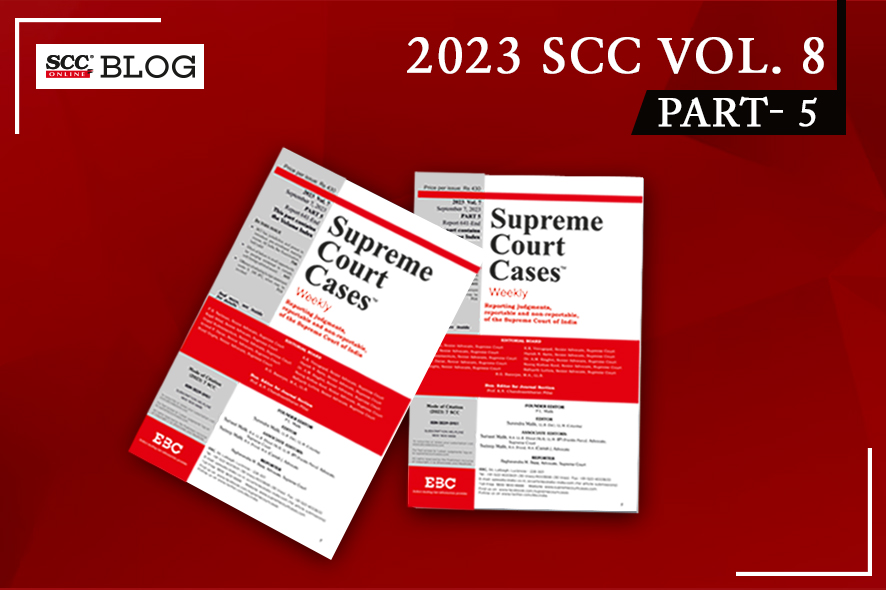Chandigarh Estate Rules, 2007 — R. 16 and second proviso thereto: Fragmentation/division/bifurcation/apartmentalisation of residential units in Phase I of Chandigarh is not permissible, in absence of any scheme notified by the Administration in that regard. Law clarified on this issue. [Resident’s Welfare Assn. v. State (UT of Chandigarh), (2023) 8 SCC 643]
Chandigarh (Sale of Sites and Buildings) Rules, 1960 — R. 14 — Validity of: Law clarified on permissibility of partitioning of building and additions and alterations thereto i.e. as opposed partitioning of plot by metes and bounds, with approval of Chandigarh Administration and bar against fragmentation/division/bifurcation/apartmentalisation of residential units in Chandigarh. [State (Chandigarh Admn.) v. Chander Parkash Malhotra, (2023) 8 SCC 709]
Criminal Procedure Code, 1973 — S. 197 — Protection of — Persons to whom available: Bank officials are not covered under this section. S. 197 protects only public servants whose appointing authority is the Central Government or the State Government and not every public servant. [A. Sreenivasa Reddy v. Rakesh Sharma, (2023) 8 SCC 711]
Constitution of India — Art. 226 — Quashment/Discharge/Stay — Prayer for quashment of FIR — Matters to be considered Court: In this case the fact that investigation had been completed and charge-sheet was ready to be filed in court, proper remedy of accused is to prefer discharge application before trial court, which would be considered in accordance with law. [Iqbal v. State of U.P., (2023) 8 SCC 734]
Insolvency and Bankruptcy Code, 2016 — S. 9: Admission of insolvency application on basis of partly admitted claim by debtor is not permissible when debtor willing to pay such admitted amount but disputes balance claim. Adjudication on existence of debt beyond admitted debt is necessary for admitting application. [Compack Enterprises India (P) Ltd. v. Jitendra Impex (P) Ltd., (2023) 8 SCC 742]
Constitution of India — Arts. 19(1)(c) & (a) and Arts. 19(2), (3) & (4) and Arts. 21 and 14 — Banned organisation or unlawful Association: Law clarified relating to criminal liability imposed therefor under special statutes (UAPA and TADA) on basis of doctrine of “guilt by (continuing) association”, whether should be read down to include the conditions of actus reus and mens rea. Nature, scope and applicability of S. 10(a)(i) r/w Ss. 3 and 4 UAPA, explained in detail. [Arup Bhuyan v. State of Assam, (2023) 8 SCC 745]







